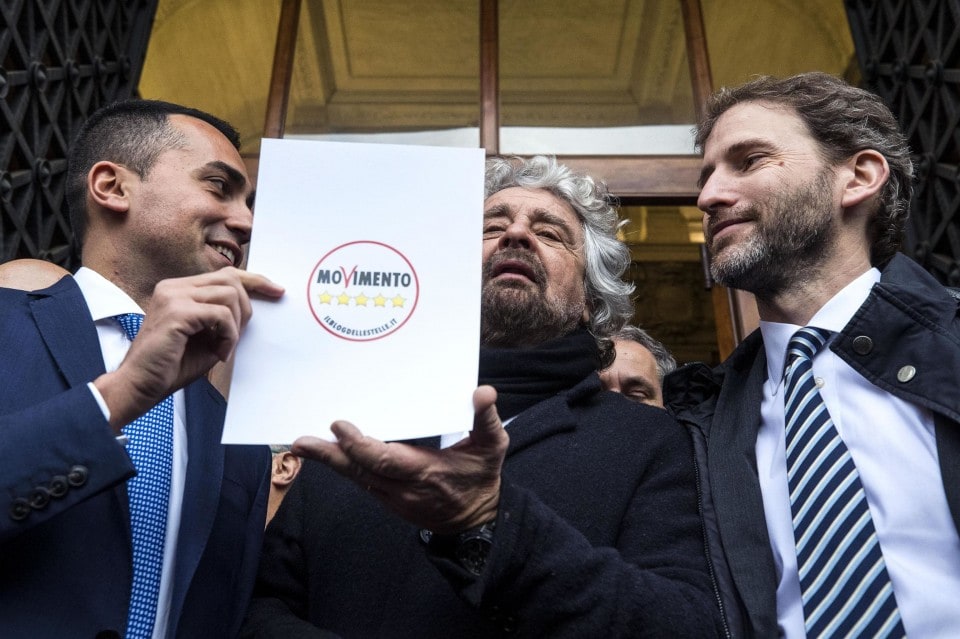Davide Casaleggio is one of the top leaders of the Five Star Movement. He is president of the Rousseau Association, which created the movement’s digital platform.
MILAN — When the Five Star Movement received the highest percentage of votes — 33 percent — in the Italian elections on March 4, its candidate for prime minister, Luigi Di Maio, said: “You can’t stop the wind with your hands.” Indeed, the Five Star Movement is an unstoppable wind that will continue to grow because it is aligned to the future. Citizens everywhere are calling for real democracy, to express their voices directly and to no longer be held back by the establishment.
The Five Star Movement, which launched in 2009, has now achieved a landmark success among Western democracies by using the Internet to play a crucial role in the electoral process. The first major digital political organization in the world, it was born and raised online, supported exclusively by donations from ordinary citizens. Its objectives and priorities are defined by citizens, not the old moribund parties, with a mission to end corruption, fight tax evasion, reduce taxes, protect the environment, improve education and accelerate innovation.
Our experience is proof of how the Internet has made the established parties, and the previous organizational model of democratic politics more generally, obsolete and uneconomic. The Five Star Movement garnered around 11 million votes in the recent election. Each vote cost us about 9 cents — a cost covered by micro-donations from about 19,000 citizens who donated a total of about $1 million, supporting all the costs of our election campaign. For the traditional parties, according to the political group More Europe, a single vote cost nearly one hundred times more, about $8.50 per vote.
The platform that enabled the success of the Five Star Movement is called Rousseau, named after the 18th century philosopher who argued politics should reflect the general will of the people. And that is exactly what our platform does: it allows citizens to be part of politics. Direct democracy, made possible by the Internet, has given a new centrality to citizens and will ultimately lead to the deconstruction of the current political and social organizations. Representative democracy — politics by proxy — is gradually losing meaning.
Our parliamentarians who stood for election were chosen through online voting on the Rousseau platform — not inside a smoke-filled room like the established parties. Since it is the citizens who finance us though micro-donations, it’s the citizens who choose our program and representatives. In the last online vote to choose our parliamentarians, 8,000 candidates were picked from 40,000 nominees. The more than 330 parliamentarians elected on March 4, which made the Five Star Movement the leading political force in Italy, came from that pool.
Further advancing direct democracy, Rousseau enables Five Star Movement members to directly propose initiatives and referendums that can be brought to the Parliament floor, thanks to a program called Lex Iscritti — Latin for “to write laws.” They can also take advantage of e-learning services on topics of political and public administration. The Rousseau Association has managed to introduce about 20 legislative proposals into Parliament, all voted on by citizens online.
Rousseau will not stop here. We are already working on new projects. One, above all, is to apply blockchain technologies to online voting. This will allow a decentralized certification of every online vote. We also imagine a meritocratic selection path through the Rousseau Open Academy that ensures that we field the highest-quality candidates.
Our goals are ambitious: We plan to get to a million active members. The movement’s North Star is the participation of its members. They are the ones who determine the most important decisions the movement has to make and the direction it will take. Our slogan — “Participate, don’t delegate!” — is what guarantees our continuing success in the future. And our hope is that we will provide a model for renovating democracy everywhere by giving it back to the citizens.
This was produced by The WorldPost, a partnership of the Berggruen Institute and The Washington Post.




